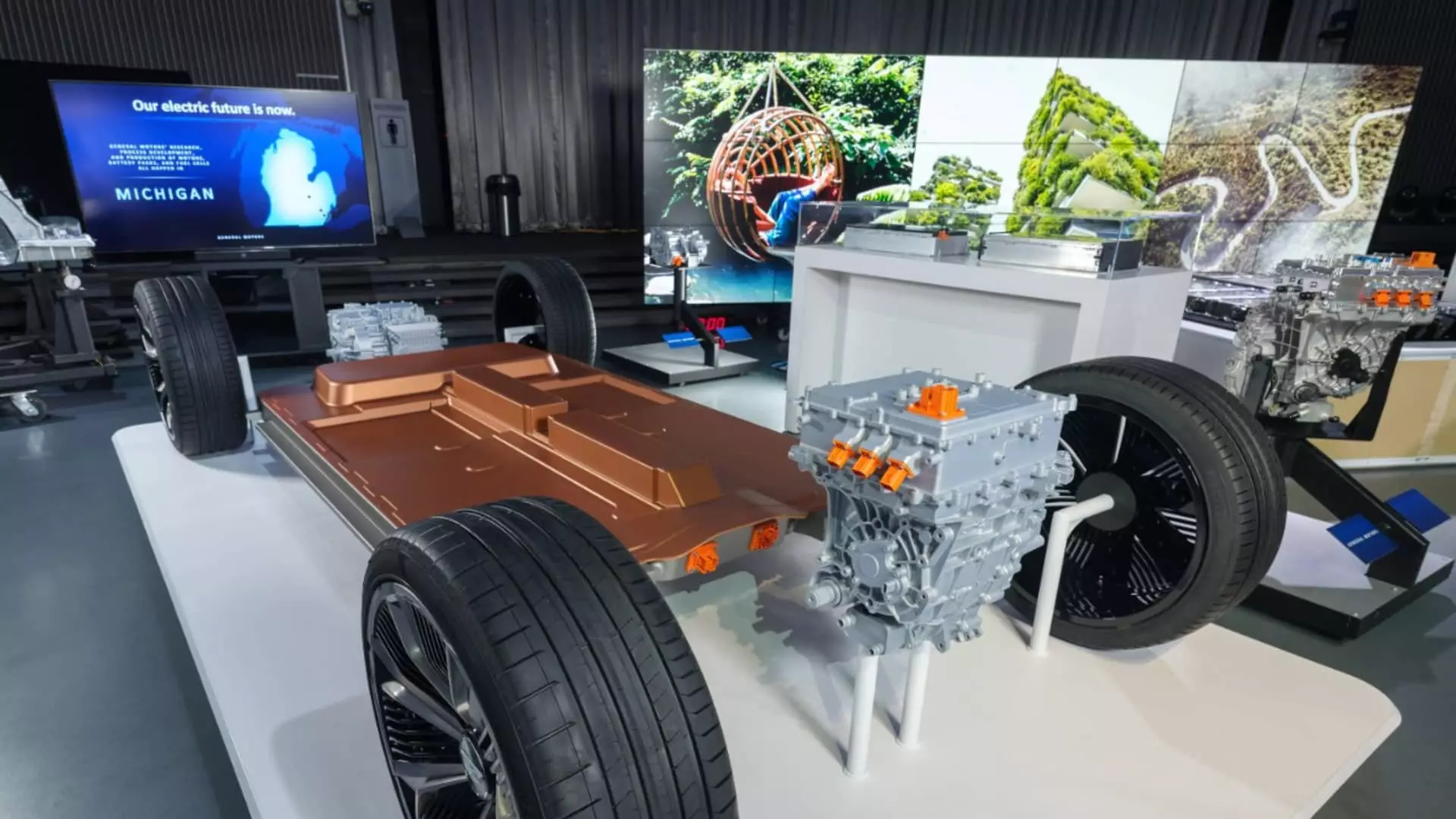In a notable shift in strategy, General Motors (GM) has announced its plans to divest its stake in a significant electric vehicle (EV) battery cell manufacturing facility located in Lansing, Michigan. This $2.6 billion plant, a collaboration with LG Energy Solution (LGES), is nearing completion and represents a critical part of GM’s ambitions in the burgeoning EV market. The decision comes as GM aims to navigate the complexities of enhancing production efficiency while grappling with softer consumer demand for electric vehicles.
The upcoming transaction, which GM anticipates will net the company approximately $1 billion—essentially recouping its initial investment—has been framed within a non-binding agreement expected to finalize in the first quarter of the coming year. This move is part of a broader recalibration as GM seeks to streamline its operations and address a shifting landscape in the EV market, influenced by a multitude of factors including federal incentives and fluctuating consumer interest.
GM’s announcement is indicative of a broader trend within the automotive industry, where manufacturers are increasingly challenged to adjust their strategies in response to market conditions. Despite the plant in question being positioned as the third facility for the joint venture dubbed Ultium Cells LLC—established to bolster GM’s electric vehicle capabilities alongside existing plants in Ohio and Tennessee—the company is recalibrating its approach as demand forecasts remain uncertain.
This is particularly vital in the context of evolving federal policies under the incoming administration, which could heavily influence both manufacturing incentives and consumer purchasing behavior concerning EVs. As GM’s Chief Financial Officer Paul Jacobson highlighted, the partnership with LG Energy Solution aims to position the automaker advantageously amidst these ongoing changes, asserting confidence in the potential for growth in a capital-efficient manner.
The Lansing facility, which is set to commence full operations by the end of this year, employs nearly 100 individuals who will soon see LG Energy Solution take the reins for equipment installation. This transition suggests a proactive approach to ensure that the plant’s advanced capabilities can swiftly meet burgeoning demand in the EV sector.
This divestment does not mean a complete shutdown of GM’s ambitions in the field; rather, it reconfigures its operational landscape while maintaining its overall stake in the Ultium Cells partnership. Further, GM has reaffirmed its commitment to another joint venture with rival Samsung SDI, suggesting a multifaceted approach to battery manufacturing.
In conjunction with the sale, GM has also announced an extension of its long-term collaboration with LG Energy Solution to innovate around battery technologies, specifically focusing on prismatic cells. This new evolution in battery design promises enhanced efficiency—vital for addressing constraints tied to weight and cost in electric vehicles. By adopting the prismatic cell format, GM aims to simplify manufacturing processes and foster greater performance capabilities.
The implications of this technological pivot could be profound, as prismatic cells offer a space-efficient configuration that not only improves the weight distribution of EVs but also potentially reduces reliance on multiple modules, thereby streamlining production. Kurt Kelty, GM’s Vice President for battery cell and pack, emphasized the strategic significance of optimizing battery chemistry and form factors to elevate both safety and performance metrics for future electric models.
GM’s decision to sell its stake in the Lansing battery facility while simultaneously extending its partnership with LG Energy Solution highlights a pivotal moment for the automotive giant. As GM reassesses its production strategies amidst evolving market dynamics and regulatory landscapes, its focus on technological innovation in battery systems could redefine its competitive position in the electrification race. This strategic recalibration underscores a commitment not merely to adapt but also to lead in the strategically imperative domain of electric vehicle technology, affirming GM’s role in shaping the future of sustainable transportation.



Leave a Reply